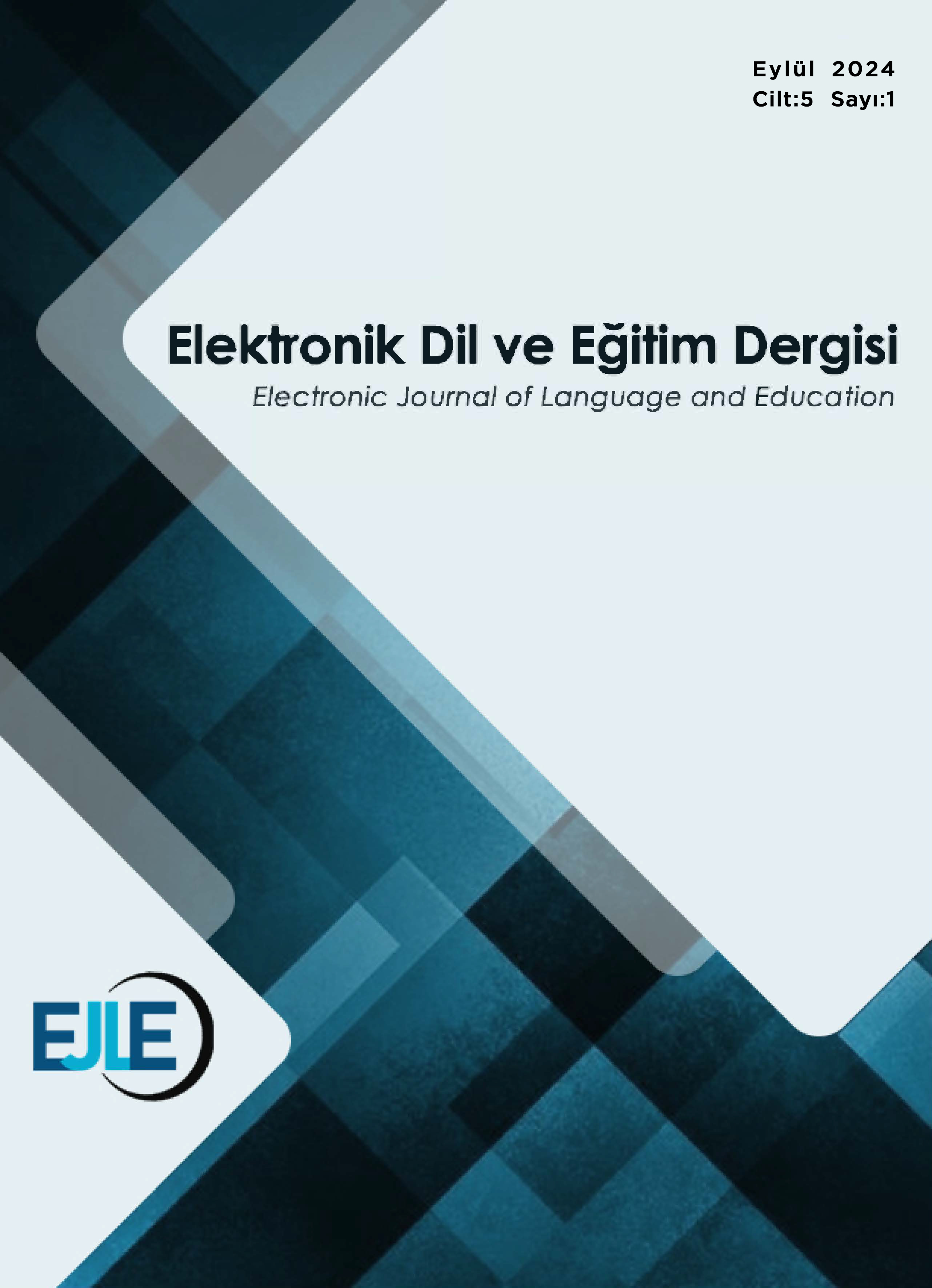Author :
Abstract
Bu araştırmanın amacı, üç dilli manzum bir sözlük olan Se-zebân’da eğitim öğretim ve değer kavramlarını incelemektir. Araştırma nitel araştırma yöntemiyle yürütülmüş olup verilerin toplanmasında doküman analizi tekniği kullanılmıştır. Araştırmanın veri kaynağı olan Se-zebân adlı eser, Konya Koyunoğlu Şehir Müze ve Kütüphanesi yazma eserler bölümünde 12299 numaraya kayıtlıdır. Toplam 33 varak olan eser, 64 beyitlik bir giriş, 748 beyitlik sözlük ve 6 beyitlik hatime bölümü ile toplam 818 beyitten oluşmaktadır. Doküman içerik analizi tekniğine uygun olarak yapılan inceleme sonuçlarına göre eserin, dil öğretiminin yanı sıra çocukların eğitim ve öğretimine yönelik de tavsiyeler taşıdığı görülmektedir. Eserde yaklaşık 60 mısrada eğitici fikirler yer almaktadır. 818 beyitten oluşan eserin yaklaşık %9'u eğitici ifadeler içermektedir. Bu durum şairin insanın kişilik gelişimine ve eğitimine verdiği önemi göstermektedir. Eserin dikkat çeken bir diğer önemli yönü de değerler eğitimi üzerine düşünceleri içermesidir. Şairin, bireyin eğitimi kadar onun karakter gelişimi ile de ilgilenmeyi önemli gördüğü anlaşılmaktadır. Değer kavramlarının sıkça yer aldığı bu eser, yazıldığı dönemin eğitim-öğretim anlayışını da bizlere göstermektedir.
Keywords
Abstract
The aim of this study is to examine the concepts of education and value in Se-zebân, a trilingual poetic dictionary. The research was conducted with qualitative research method and document analysis technique was used to collect data. The work named Se-zebân, which is the data source of the research, is registered under the number 12299 in the manuscript section of Konya Koyunoğlu City Museum and Library. The work, which has a total of 33 barrels, consists of a poetic introduction of 64 couplets, a dictionary of 748 couplets and a 6 couplet section with a total of 818 couplets. According to the results of the analysis conducted in accordance with the document content analysis technique, it is seen that the work contains recommendations for the education and training of children as well as language teaching. The work contains educational ideas in approximately 60 verses. Approximately 9% of the work, which consists of 818 couplets, contains educational expressions. This shows the importance the poet attaches to human personality development and education. Another important aspect of the work is that it contains thoughts on values education. It is understood that the poet considers it important to be interested in the character development of the individual as well as his education. This work, which frequently includes value concepts, also shows us the understanding of education and training of the period in which it was written.





